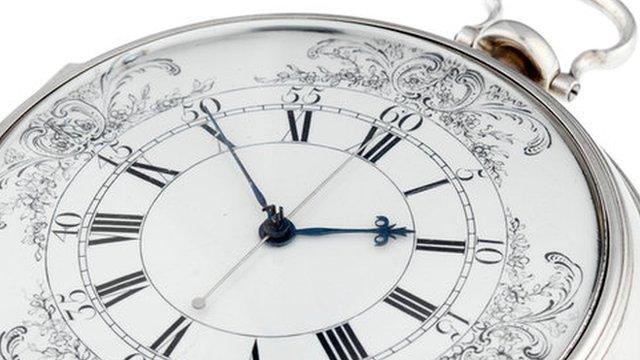Clockmaker John Harrison's Nostell Priory honour
- Published
More than 2,000 ticking clocks go on display in an art installation
More than 2,000 ticking clocks have gone on display in an art installation as British Summer Time (BST) begins.
Set up at Nostell Priory, near Wakefield, it has been created to celebrate the life of clockmaker John Harrison.
Harrison, the son of a carpenter, was born at the estate in 1693 and went on to invent the marine chronometer.
The Harrison's Garden installation was created by artist Luke Jerram and fills an entire room.
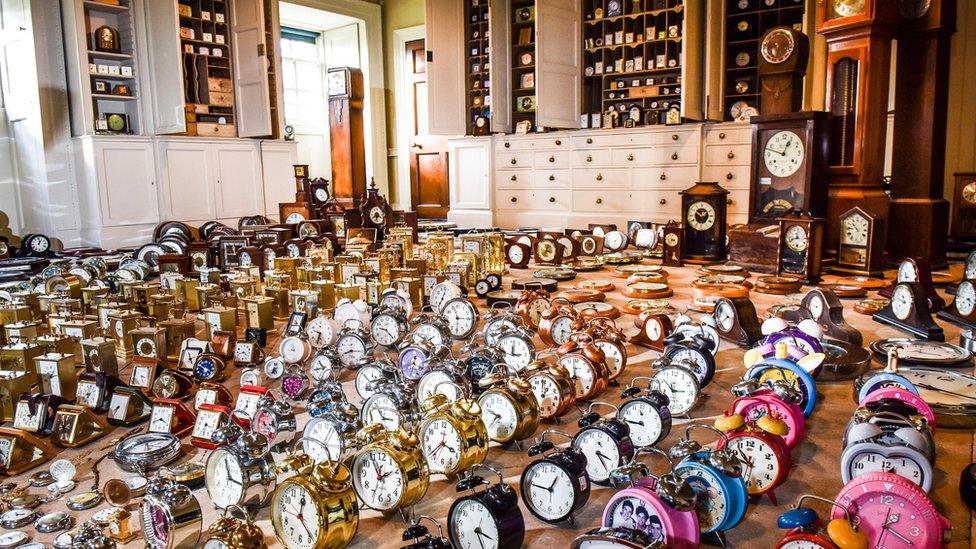
The installation takes up an entire room at Nostell Priory
He said: "It is a glimpse of a surreal fictional world or perhaps an image from one of John Harrison's dreams.
"Like a garden, the installation is a living and growing collection of different clock 'species'."
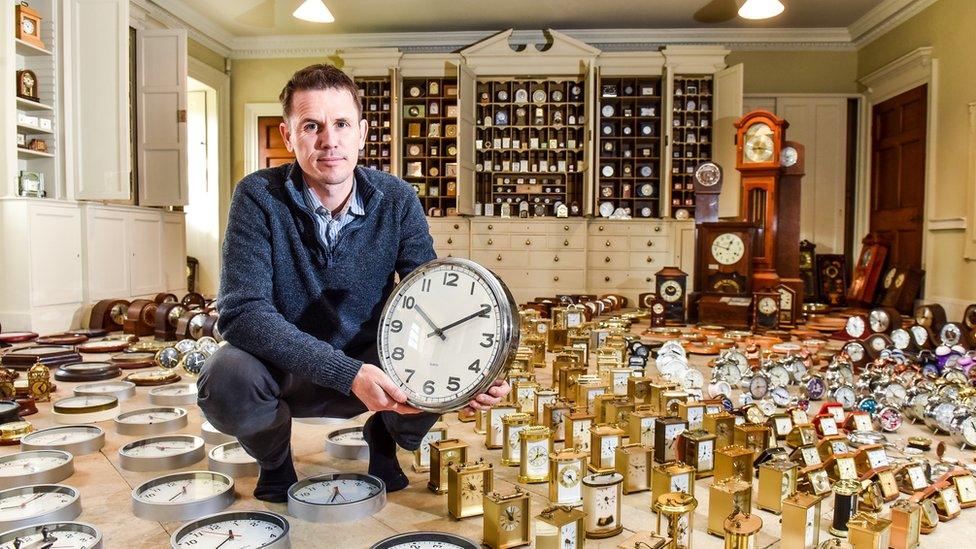
Luke Jerram's installation is made up of clocks each set to a different time enabling visitors to both see and hear the display without being deafened
Harrison and his family moved from Nostell to the Lincolnshire village of Barrow upon Humber in around 1700.
He spent his early years creating clocks entirely from wood and he was producing long-case clocks by the time he reached his 20s.
The mechanism was made entirely out of wood and one of only three to survive, dating from 1717, is also displayed at Nostell.
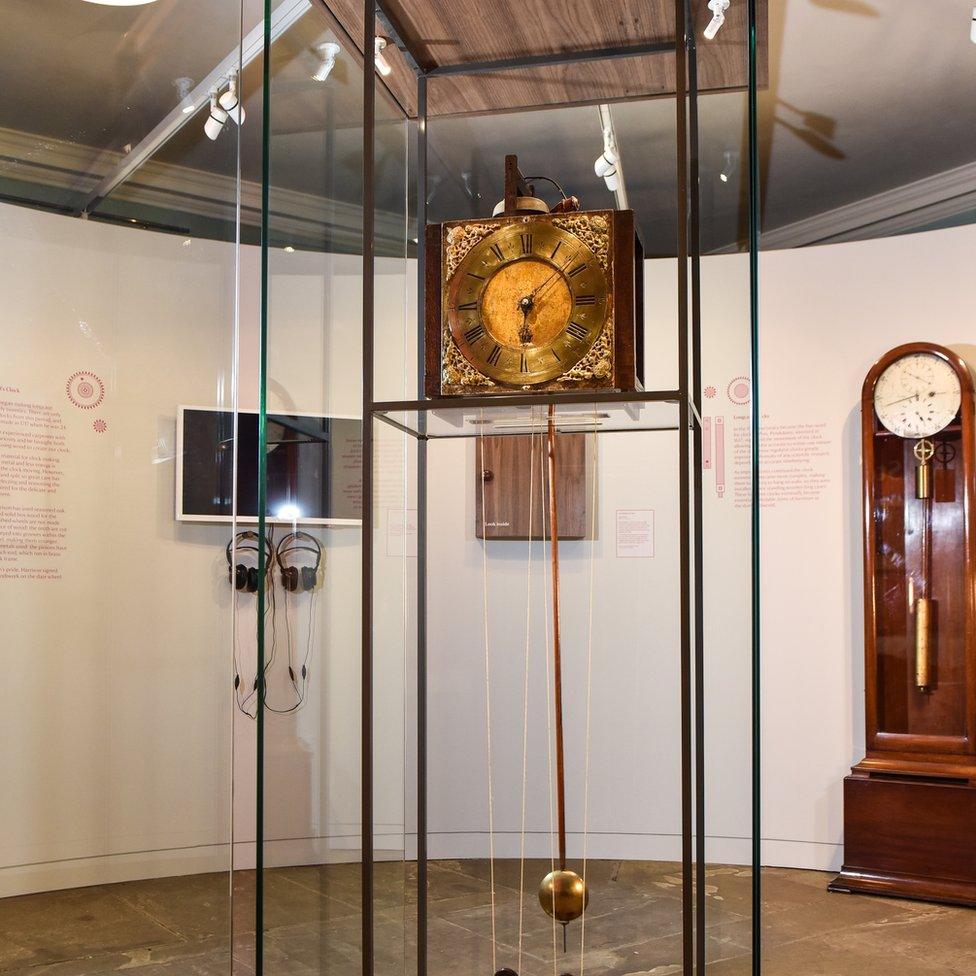
The house is home to one of Harrison's three surviving long-case clocks
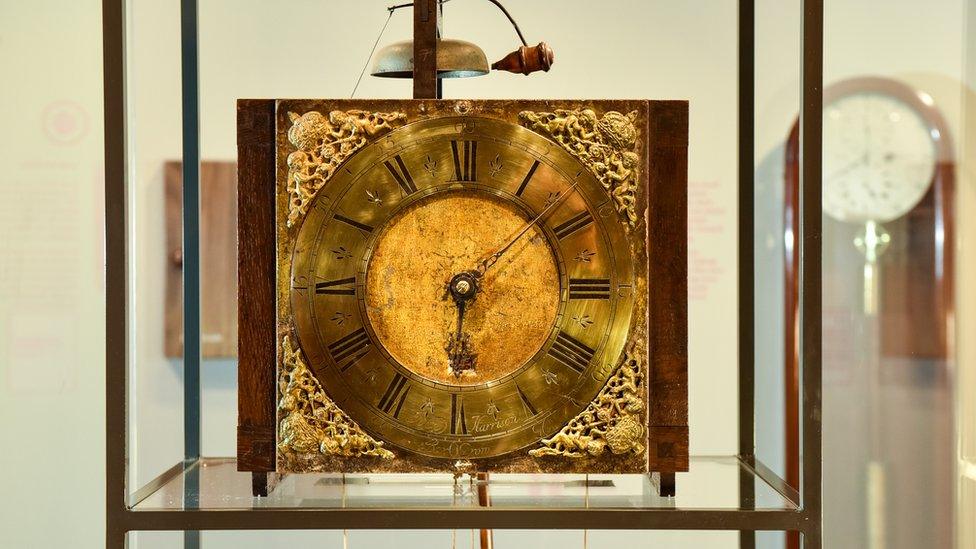
He spent much of his later life trying to solve the problem of determining longitude at sea.
Sailors of the period had no way of calculating where they were when travelling east to west.
They knew that for every 15 degrees travelled eastward, the local time moves forward one hour.
Harrison realised the solution was creating a reliable clock that could keep the time of a reference place, such as Greenwich, and provide an accurate local time.
Harrison's Garden is on display at Nostell Priory until 9 July. It will then tour other National Trust properties including Castle Drogo in Devon, Gunby Hall in Lincolnshire and Penrhyn Castle in Wales.
- Published19 May 2014
